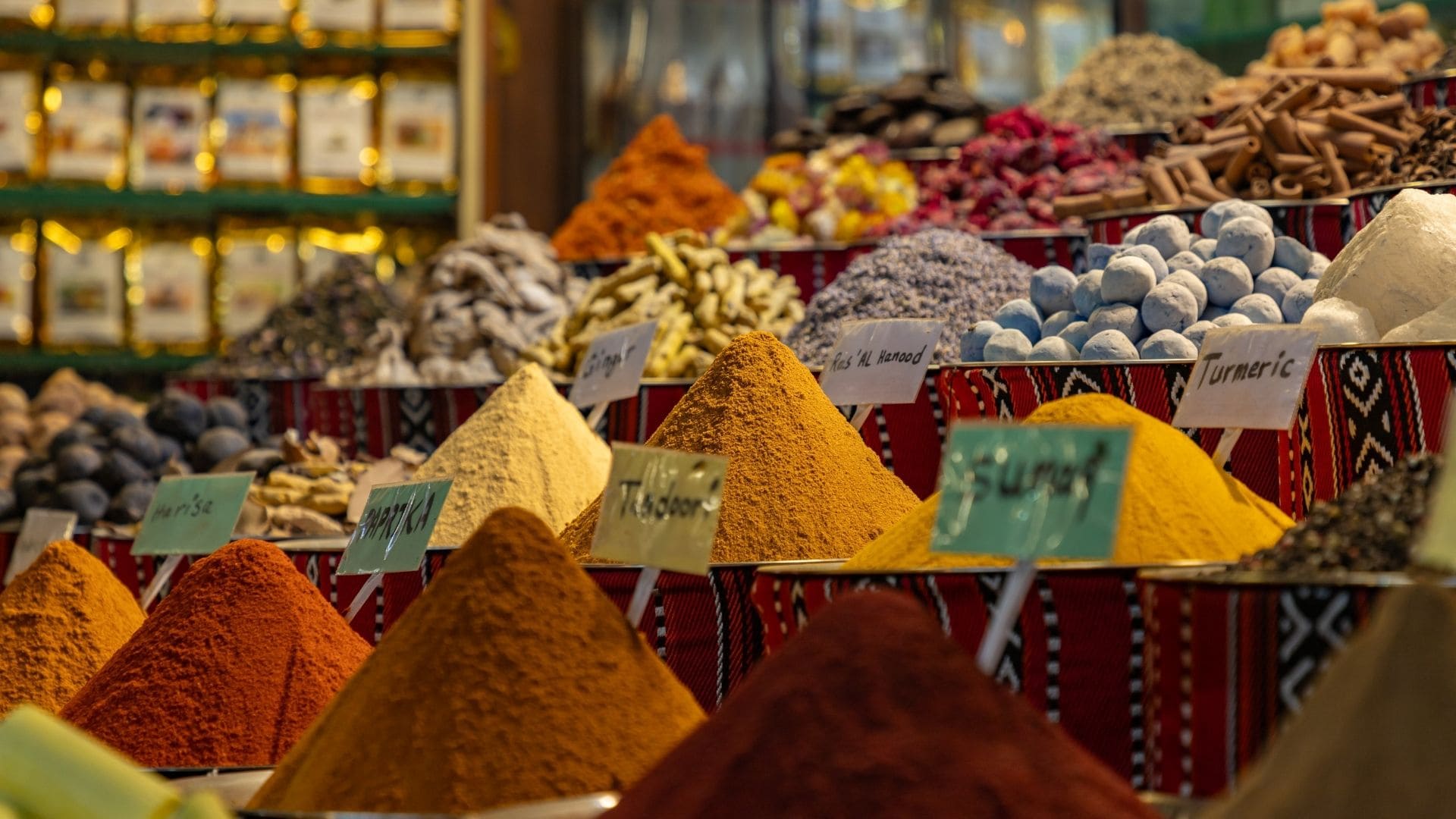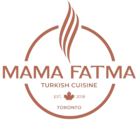When you step into a Turkish kitchen, you’re immediately greeted by the aroma of rich spices, hearty grains, and fresh ingredients that make Turkish cuisine unique. For those passionate about replicating Turkish recipes at home, it all begins with building a Turkish pantry. With locations in Vaughan and Mississauga, Ontario, Mama Fatma brings the flavors of Turkey, the Middle East, and the Mediterranean to Toronto, Ontario, Canada through authentic dishes prepared with essential Turkish ingredients.
In this article, we’ll guide you through the must-have ingredients in a Turkish pantry, from spices and grains to sauces and sweeteners. This way, you’ll be ready to bring Turkish flavors into your own kitchen or visit Mama Fatma to experience them firsthand.
Basics Every Turkish Kitchen Needs
Every Turkish pantry is built around a few essentials that form the foundation of classic Turkish cooking. These ingredients are versatile and used in countless dishes to add depth and authentic flavor.
- Olive Oil: Olive oil is indispensable in Turkish cooking, used in everything from salad dressings to sautéing vegetables and meats. In Turkey, high-quality extra-virgin olive oil is prized for its rich flavor and health benefits. At Mama Fatma, we use olive oil to create flavorful, helal dishes that preserve the true taste of Turkish and Mediterranean cuisine.
- Garlic and Onion: These two ingredients are foundational in Turkish cooking, adding aroma and depth to sauces, soups, and stews. From the classic Turkish eggplant in tomato sauce to hearty meat dishes, garlic and onion provide a savory backbone to many recipes.
- Tomato Paste: This concentrated paste of sun-ripened tomatoes is a staple in Turkish kitchens. Tomato paste brings a bold, savory taste to dishes like lentil soup, Turkish stews, and sauces, such as the iconic eggplant in tomato sauce Turkish-style.
Popular Spices in Turkish Cooking
Turkish cuisine is renowned for its rich, aromatic spices, each adding a unique flavor to the dish. If you want to build an authentic Turkish pantry, these spices are a must:
- Sumac: This tart and tangy spice, made from ground sumac berries, adds a pop of acidity to salads, grilled meats, and dips. Sumac is often sprinkled over Turkish dishes to provide a refreshing, citrusy kick that enhances the flavors of other ingredients.
- Cumin: Cumin is essential in classic Turkish cooking for its earthy, warm flavor. It’s commonly used in köfte (Turkish meatballs), lamb dishes, and many vegetable stews. You’ll find cumin in a variety of dishes at Mama Fatma, where it enhances the deep flavors of our meat and vegetable-based meals.
- Paprika: From sweet to smoky, paprika is versatile in Turkish cuisine. Mild and earthy, it’s used in sauces, stews, and marinades. It’s particularly common in Turkish chicken and lamb dishes, where it adds color and a subtle sweetness.
- Mint: Fresh and dried mint are popular in Turkish cuisine, especially in salads, soups, and meat dishes. Dried mint, in particular, adds a fragrant note to dishes like cacık (a yogurt dip similar to tzatziki) and lentil soup.
- Aleppo Pepper (Pul Biber): A mild chili pepper with a smoky, slightly sweet flavor, Aleppo pepper is widely used in Turkish cooking. It’s often added to kebabs, meze dishes, and egg-based dishes to add a gentle heat.
These spices are at the heart of Turkish kitchen essentials. At Mama Fatma, we use them to bring out the authentic flavors of Turkey, the Middle East, and the Mediterranean, capturing the aromatic qualities that make our cuisine unforgettable.

Traditional Turkish Grains and Legumes
Grains and legumes are central to Turkish cuisine, providing the base for many dishes and adding texture and nutrition.
- Bulgur: Made from whole wheat, bulgur is a staple grain in Turkey, used in dishes like tabbouleh (kisir) and pilaf. Its nutty flavor and hearty texture make it an ideal base for salads and side dishes. If you’re building a Turkish pantry, bulgur is a must-have ingredient that’s versatile and easy to prepare.
- Rice: Turkish-style rice, especially medium or short-grain rice, is often prepared with butter or olive oil to make it tender and fragrant. Turkish pilaf, a beloved side dish, is cooked with tomatoes, peppers, or vermicelli for added flavor.
- Lentils: Red lentils are a common ingredient in Turkish cooking, especially in soups like mercimek çorbası (lentil soup). Nutritious and hearty, lentils are a great base for vegetarian dishes and are often spiced with cumin and mint.
- Chickpeas: Chickpeas are a staple legume in Turkish kitchens, used in stews, hummus, and pilafs. Their creamy texture and mild flavor make them perfect for creating rich and satisfying dishes like nohutlu pilav (rice with chickpeas).
Grains and legumes like these are essential for classic Turkish cooking and are used in many dishes at Mama Fatma, where you can taste the richness of traditional Turkish cuisine right here in Toronto, Ontario, Canada.
Common Oils and Vinegars in Turkish Cooking
Turkish cuisine relies on quality oils and vinegars that add flavor to dishes and help create authentic textures:
- Olive Oil: As mentioned earlier, olive oil is essential in Turkish cooking. At Mama Fatma, we use olive oil in almost every dish, from salads to meats, bringing out the natural flavors of our fresh ingredients.
- Grapeseed Oil: This mild-flavored oil is occasionally used for frying due to its high smoke point. While olive oil remains the primary oil, grapeseed oil is ideal for specific cooking needs.
- Pomegranate Molasses: Not a vinegar, but an essential sour-sweet syrup, pomegranate molasses is commonly used to add acidity and depth to dressings, marinades, and sauces. It’s especially popular in salads and vegetable dishes, where it brings a unique tanginess.
With these oils and vinegars in your pantry, you can replicate the flavors of Turkish cuisine at home or, for a truly authentic experience, visit Mama Fatma’s and taste dishes prepared with the finest ingredients and techniques.

Traditional Turkish Sauces and Condiments
A true Turkish pantry wouldn’t be complete without traditional sauces and condiments that add the finishing touch to each dish:
- Garlic Sauce: Turkish garlic sauce is made with garlic, yogurt, and sometimes lemon. It’s a delicious condiment for grilled meats and roasted vegetables. At Mama Fatma, our garlic sauce complements many of our kebabs and wraps, adding a rich, creamy flavor.
- Yogurt Sauce: Yogurt is often mixed with herbs, garlic, and lemon to create a light, tangy sauce that pairs well with meats, vegetables, and rice. This Turkish yogurt sauce is a staple for dishes like döner and kebabs.
- Eggplant Sauce: Eggplant plays a significant role in Turkish cuisine, often grilled, mashed, and mixed with tomatoes, onions, and garlic to create a rich sauce. One popular dish, eggplant in tomato sauce Turkish-style, features eggplant simmered in a savory tomato sauce, creating a perfect balance of flavors.
These sauces and condiments provide a taste of classic Turkish cooking. They’re also integral to Mama Fatma’s menu, enhancing the flavors of our grilled meats, meze platters, and vegetable dishes.
Sweet Ingredients for Turkish Desserts
No Turkish meal is complete without a touch of something sweet. Turkish desserts are often flavored with unique ingredients that provide a distinct, delicious ending to the meal.
- Honey: Honey is used in many Turkish desserts, from baklava to helva. Its natural sweetness and rich flavor make it perfect for sweet pastries and yogurt dishes. At Mama Fatma, we use honey in our baklava, giving it that authentic, satisfying taste.
- Pistachios and Walnuts: Nuts like pistachios and walnuts are common in Turkish cooking, particularly in desserts. They add texture and flavor to Turkish desserts such as baklava and künefe. These ingredients are essential to capturing the authenticity of Turkish desserts baklava and beyond.
- Rose Water and Orange Blossom Water: These floral waters add a subtle aroma to Turkish sweets. They’re often used in Turkish delight (lokum) and syrup-soaked desserts, adding a hint of fragrance that enhances the dessert’s sweetness.
- Semolina: Semolina is used in a variety of Turkish desserts, including helva and revani (a semolina cake). Its unique texture and ability to absorb flavors make it ideal for desserts.
If you’re eager to taste traditional Turkish cuisine desserts, we invite you to visit Mama Fatma in Vaughan or Mississauga. Our dessert menu includes Turkish food desserts that offer an authentic experience of Turkey’s sweetest treats, perfect for ending any meal.
These essential ingredients capture the essence of Turkish cuisine, from the savory richness of olive oil to the aromatic touch of mint and sumac. At Mama Fatma, we are proud to bring these traditional flavors to our guests in Toronto, Ontario, Canada, where every dish is made with high-quality, helal ingredients. Whether you’re new to Turkish cuisine or a longtime fan, come experience the vibrant flavors of Turkey at Mama Fatma.
For an authentic taste of Turkish cooking, come visit us and discover why Mama Fatma is a cherished destination for Turkish, Middle Eastern, and Mediterranean food lovers in Ontario!


Exploring the Role of Yogurt in Turkish Savory Dishes
Main Entrees Delight in the heart of our menu! Order your favorite Main Entrees from Mama Fatma and enjoy a feast of authentic flavors. Order Now Turkish cuisine is renowned

Exploring Turkish Flavors with Vegetarian Dishes
Cold Appetizers Refresh your palate with our delicious Cold Appetizers! Order now from Mama Fatma and enjoy the perfect start to your meal Order Now Turkish cuisine is renowned for

The Importance of Clay Pot Cooking in Turkish Cuisine
Main Entrees Experience the magic of Clay Pot Cooking! Order now from Mama Fatma and savor the slow-cooked, authentic flavors of our traditional dishes Order Now When it comes to

How to Host a Turkish-Style Dinner Party
Main Entrees Make your dinner party unforgettable! Book your order at Mama Fatma Restaurant and let us serve you and your guests with authentic, flavorful dishes. Order Now Hosting a

Exploring the History of Turkish Desserts with Nuts
This is the heading Treat yourself today! Order your favorite dessert from Mama Fatma and indulge in the sweet flavors of our authentic menu Order Now Turkish desserts are a

A Beginner’s Guide to Turkish Bread Varieties
Bread (ekmek) is the heart of Turkish cuisine. Whether served alongside savory stews, stuffed with delicious fillings, or enjoyed as a snack, Turkish bread holds cultural, culinary, and emotional significance.



